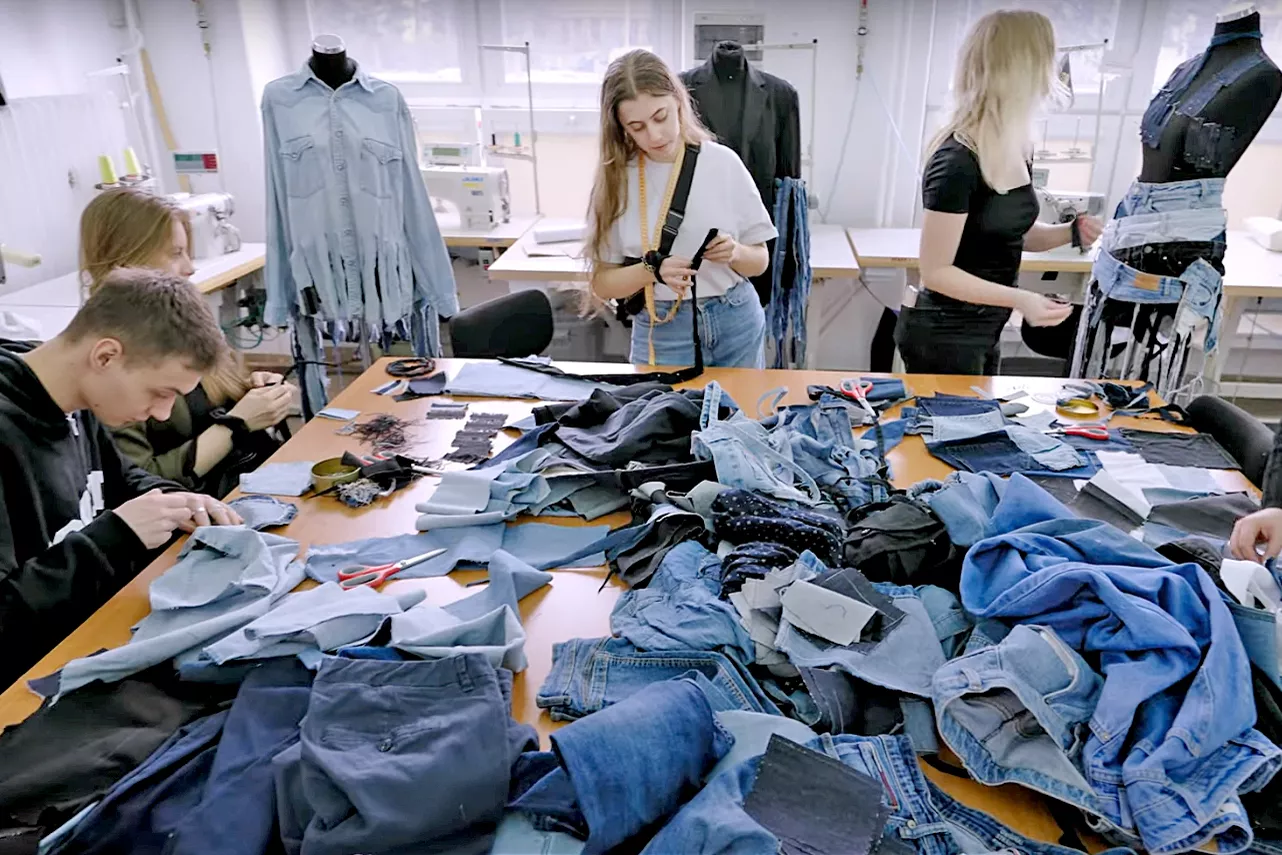“Fashion is a language that is created in clothes to interpret reality,” said German fashion designer, Karl Lagerfeld. But for this interpretation to be possible, and for clothes to be available, we need raw materials, creators, and designers. The newly formed student research group SKN Włókno will gather people who sew, knit, crochet, dye, print, or are simply looking for a new passion, as explained by the president, Paulina Warda.
Where did the idea to merge student research groups come from?
The merger of three student research groups: Knitters, Clothiers, and Textile Chemists is an initiative of the Vice-Dean for Student Affairs, Barbara Niekraszewicz, PhD and the circle supervisors: Magdalena Kłonowska, PhD (SKN Knitters), Justyna Pinkos, PhD (SKN Clothiers), and Emilia Śmiechowicz, PhD (SKN Textile Chemists). The smaller number of students and the pandemic dictated the need to reorganize the existing structures. The merger gave us greater opportunities, as we have access to the infrastructure of the involved institutes and the knowledge of our scientific supervisors.
What do you do?
The student research group SKN Włókno focuses on cooperation with employees of Lodz University of Technology, scientific research units, and industry centers related to the field of textiles. We engage in various types of initiatives organized by the Faculty of Material Technologies and Textile Design and we hope that we will also serve as organizers of similar initiatives. For now, we are preparing promotional gadgets - cotton bags with prints - for the TUL Open Days. Exhibitions of collections entirely made by members of previous research groups are very important to us. They were presented at national and international conferences in the textile and clothing industry, such as the Nationwide Student Seminar TEXTIL or the International Scientific Conference CLOTECH. One of the inspirations for further activities is also cooperation with the Museum of the City of Lodz in the Poznański Palace, where students made a replica of a 19th-century dress.
Textile industry is mainly associated with designing and sewing clothes, while Lodz University of Technology focuses on an innovative approach to this field. What would the members of SKN Włókno associate this category with?
From the beginning of their studies, textile students learn about the properties and applications of individual fibers, then semi-finished products and textile products. They can consciously control the parameters of textiles to achieve specific results and functionalities. The application of such products is unlimited, so we use textile products in medicine, agriculture, or various branches of industry. Learning and researching modern textile materials with unusual properties, e.g. special/interactive fibers, fabrics, and knits, which can be used in various areas of our life, including the military, special services, or medicine, is definitely an innovative side of textiles at PŁ, which our lecturers take special care of.
In the case of clothing, every textile student knows which raw materials will work best in a given model, what weave and weight of the material will be most advantageous, or how to produce a given material so that it looks nice, is durable, functional, and does not shrink after the first wash. As future textile students, we know how to construct a given product so that it does not stretch, lays well, is comfortable to wear, and will serve us for many years. We know about clothing production from the lining.
That's why the circle wants to focus on cooperation with various types of companies. The university's infrastructure is really very good, I mean that we get access to specialized research equipment, so testing individual textile products would not be a problem for us. Cooperation with the industry is a mutual benefit - we can show off and verify our technological knowledge in practice, and companies will receive information about the weaknesses and strengths of the product. In fact, a clothing brand has designers and subcontractors at its disposal, they do not have a production background. Specific information about individual properties can be provided by specialists - engineers like us.
What will the process of bringing members together look like?
Membership in the research group is voluntary, so students of suspended circles can choose what to do next. We also have the opportunity to cooperate with graduates. We conduct open recruitment, which means that you can join the team at any time.
Anyone who is a student or doctoral student of Lodz University of Technology can become a member. I want to draw attention to this. To join us, just contact us via the SKN Włókno Facebook. We cordially invite you.
What does being an active member of a student research group teach and what opportunities does it provide in the job market?
We focus on practice and cooperation with the industry. This is very valuable for students, as they gain experience that makes it easier for them to start in the job market. In this way, students learn independence in action, decision-making, and testing themselves in various situations they will have to deal with in workplaces. Personal and social development is a natural consequence of these experiences.
Interviewed by: Paulina Krygier
Photos: private archive
